#pediatric urologist surgeon
Link

Best pediatric urologist India is a specialist in leading-edge, minimally invasive techniques for many common and complex procedures.
#best pediatric urologist in india#pediatric urologist#pediatric urologist delhi#pediatric urologist near me#pediatric urologist surgeon#Urology Surgery Cost in India
0 notes
Text
Choosing the right Pediatric urologist in India is crucial for ensuring your child receives the best possible care. With India’s growing expertise in pediatric urology, parents have access to world-class specialists and cutting-edge treatments. By considering factors such as qualifications, experience, and hospital affiliation, you can find a pediatric urologist who will provide the compassionate and expert care your child needs.
Remember, early diagnosis and timely intervention are key to managing pediatric urological conditions effectively. If your child is experiencing any urological issues, don’t hesitate to seek the advice of a specialist. Your child’s health and well-being are of utmost importance, and finding the right pediatric urologist can make all the difference.
Pediatric Urologist in India, Pediatric Surgeon in Delhi, Child health Care, Pediatric Urologist in Delhi, Dr. Prashant Jain
#Pediatric Urologist in India#Pediatric Surgeon in Delhi#Child health Care#Pediatric Urologist in Delhi#Dr. Prashant Jain
0 notes
Text
Dr. Rachit Goel - Best Pediatric Urologist in Ghaziabad, Delhi NCR | Yashoda Hospital
Dr. Rachit is dedicated to providing exceptional care to both little and older children. Dr. Rachit Goel, a highly skilled Pediatric & Neonatal Surgeon/Pediatric Urologist, plays a vital role in our esteemed Pediatrics & Neonatalogy team at Yashoda Hospital.
#pediatric urologist#neonatal surgeon#pediatric surgeon near me#neonatal hospital#pediatric hospital#Yashoda Hospital#Yashoda Healthcare Hospital#pediatric hospital in ghaziabad#best neonatal hospital in ghaziabad#Neonatalogy
0 notes
Text
Bladder Health Matters: Understanding Common Urological Conditions
Introduction
Bladder health is essential, yet it often doesn’t get the attention it deserves until something goes wrong. Let's take a look at some common urological conditions and what you can do to keep your bladder in top shape.
Why Bladder Health is Important
Your bladder stores urine before it leaves your body. Keeping it healthy helps you avoid discomfort and more serious health issues.
Common Bladder Issues
1. Urinary Tract Infections (UTIs)
What is it? Infections in any part of your urinary system.
Symptoms: Burning sensation when peeing, frequent need to pee, cloudy urine.
Treatment: Usually antibiotics. Drink lots of water and practice good hygiene to prevent them.
2. Overactive Bladder (OAB)
What is it? A condition where you feel a sudden urge to pee, often.
Symptoms: Frequent urination, urgency, sometimes incontinence.
Treatment: Bladder training, lifestyle changes, medications, or surgery.
3. Interstitial Cystitis (IC)
What is it? Chronic bladder pain and pressure.
Symptoms: Pelvic pain, frequent urination, discomfort when the bladder is full.
Treatment: Diet changes, physical therapy, medications, or bladder instillations.
4. Bladder Stones
What is it? Hard mineral masses in the bladder.
Symptoms: Painful urination, frequent urination, blood in urine.
Treatment: Drinking water, medications, or surgery to remove stones.
5. Bladder Cancer
What is it? Cancer starting in the bladder cells.
Symptoms: Blood in urine, frequent or painful urination, back pain.
Treatment: Surgery, chemotherapy, radiation, or immunotherapy.
Tips for a Healthy Bladder
Drink Water: Stay hydrated to flush out toxins.
Good Hygiene: Clean properly to avoid infections.
Healthy Eating: Avoid bladder irritants like caffeine and spicy foods.
Exercise: Stay active to keep your bladder healthy.
Regular Check-Ups: See your doctor regularly to catch problems early.
Conclusion
Understanding and addressing bladder health is crucial. By recognizing symptoms early and seeking treatment, you can avoid complications and maintain a healthy bladder. Stay hydrated, practice good hygiene, eat a healthy diet, exercise regularly, and keep up with medical check-ups to keep your bladder in great condition.
Credits:https://chennaikidneycare.com/
#pediatric urology#urology doctor#urologist surgeon#urinary tract infection#urology specialist#best urology doctor#best urology hospital in chennai#urinary incontinence#robotic surgeon#best urologists in chennai
0 notes
Text
0 notes
Text
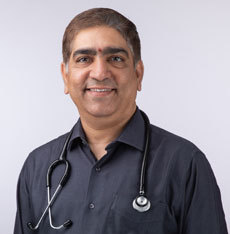
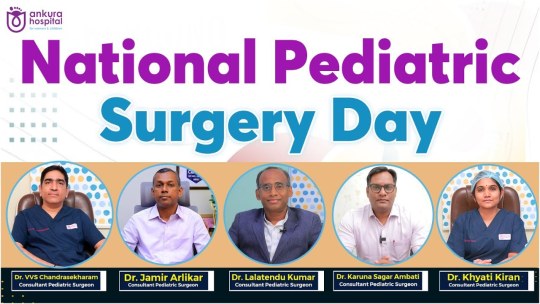
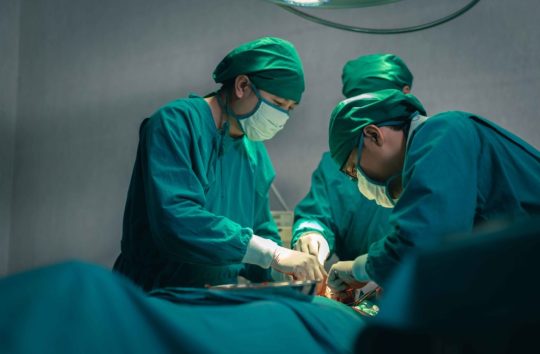
Ankura Hospital is well-recognized as the Best Pediatric Surgeon in Hyderabad. Our skilled and well-practiced doctors are specialized in providing advanced medical care to pediatric patients, from newborns to adolescents. They are extensively disciplined in medical specializations like Pediatric Neurology, Pediatric Rheumatology, Pediatric Cardiology, Pediatric Pulmonology, Pediatric Nephrology, Pediatric Endocrinology, Pediatric Dermatology, Pediatric Urology. One of the most important reasons behind Ankura’s success is our group of pediatric surgeons that is highly devoted and skilled in giving compassionate care and exclusive services to our young patients. Our team takes good care of the essential necessities of the children and their families.
Our division of Pediatric Urology at the Ankura Hospital is highly committed to providing the best quality surgical procedures for all types of genitourinary conditions in children. The common procedures performed by our Best Pediatric Urologist in Hyderabad include umbilical hernia repair, undescended testes, laparotomy for tumor or cyst excision, and ureteric reimplantation. Our Best Pediatric Surgeon in Hyderabad also holds expertise in hypospadias repair, circumcision, hydrostatic reduction of intussusception, collagen dressing for burns, or minor suturing.
Our pediatrics urologists not only have expertise in complex surgical procedures but also are skilled in advanced laparoscopic surgeries which are painless and scar-free. Our minimally invasive laparoscopic surgeries include laparoscopic repair of hernia, thoracoscopy CDH repair, laparoscopic appendectomy, orchiopexy, laparoscopic pyeloplasty, laparoscopic fundoplication and gastrostomy, and vescicoscopic ureteric reimplantation. Hence if you are willing to contact the Best Pediatric Urologist near me, the urology department of Ankura Hospital has got you covered.
Our pediatrics urologists specialize in cutting-edge services like urology, reconstructive urology, uro-oncology, kidney transplantation, and robotic surgery. We are standing out as the Best Pediatric Urologist in Hyderabad because of our state-of-the-art facilities. We understand that pediatric urologic conditions are more complex and sensitive as compared to adults. Our pediatric surgeons are practised enough to quickly identify and treat intricate conditions and minimize invasive tests and procedures.
Book an Appoint Now!
Ankura Hospital Hyderabad is the best pediatric surgeon & urologist nearby Best Pediatric Surgeon Hyderabad, Best Pediatric Urologist in Hyderabad, Best Pediatric Surgeon near me, Best Pediatric Urologist near me. For more information contact +91 9053 108 108.
youtube
#Best Pediatric Surgeon Hyderabad#Best Pediatric Urologist in Hyderabad#Best Pediatric Surgeon near me#Best Pediatric Urologist near me#Youtube
0 notes
Text
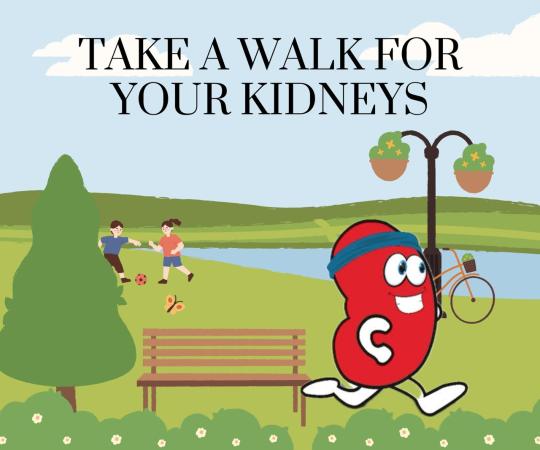
Take a Walk for Better Kidneys! Walking can easily help you improve your health and maintain an active lifestyle. Even if you're dealing with dialysis or kidney problems, a walk can make a big difference. So, let's take a walk together and keep those kidneys smiling! - Dr. Abhishek Kumar Singh - Best Urologist in Lucknow | Kidney Specialist | Urology doctor | Andrologist | Laparoscopic Surgeon
#WalkForKidneys #KidneyHealth #StayActiveStayHealthy #urologist #lucknow #lucknowcity #urology #besturologydoctornearme #kidneystonetreatmentinlucknow #Drabhsihekkumarsingh #KidneyWellness #KidneyCare
#urologist #lucknow #lucknowcity #urology #urologysurgery #hospital #erectiledysfunctiontreatment #uttarpradesh #advancedurology #urologista #urinarytractinfection #kidneystones #topurologydoctorinLucknow #Besturologistinlucknow #top3urologistinlucknow #besturologydoctornearme #kidneystonetreatmentinlucknow #Drabhsihekkumarsingh #bestandrologistinlucknow #bestkidneydoctorinlucknow #bestprostatecancerdoctorinlucknow #bestlaparoscopicsurgeoninlucknow
#best urologist in lucknow#urology specialist#kidney stone specialist#andrology#kidneyhealth#laparoscopy surgery#urology clinic#pediatric urologist#urologist surgeon#best urology hospital in lucknow
0 notes
Text
Undescended Testes In Children
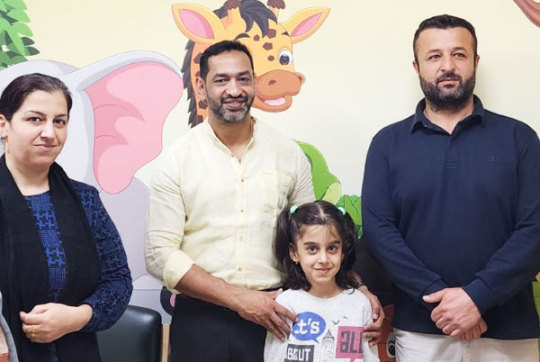
The male sexual glands are the testes, and they produce sperm and hormones for sexual reproduction. The testes typically reside in the scrotum, occasionally one or both testes may not descend into the scrotum after developing, which means that when the testis is outside its normal location in the scrotal sac, it is called an undescended testis. This condition normally occurs before birth.
What causes a child to have undescended testes?
Early-born infants are more likely to have undescended testes (preterm or premature babies). This is due to the fact that the testes do not descend into the scrotal sac until month 7 of a baby’s development in the uterus. Other factors contributing to undescended testes could be spina bifida or hormonal issues.
Testicles may shift up and down from the scrotum back into the groin as a reflex, which could be the root of the problem (retractile testes). The testicles can sometimes be absent. Rarely, a child who has had an inguinal hernia repaired may experience undescended testes.
Which children are most likely to have undescended testes?
An estimated 3 in 100 to 1 in 20 male infants are born with this disease.
A child is more vulnerable if:
Born before 37 weeks of pregnancy
Tiny for the gestational age
With low birth weight
Has a family member suffered from the condition
What are the different categories of undescended testes?
Congenital and acquired undescended testes are two different categories.
Congenitally undescended testes:
Congenitally undescended testes are present in newborns who are born without scrotal testes.
Most of the time, doctors are unable to identify the cause; however, some hormone and genetic problems can result in undescended testes.
The testes might not have had enough time to descend into the scrotum by the time premature babies are born.
Acquired undescended testes:
Sometimes a child’s testicles are in the scrotum when they are born, but they later grow undescended testes.
The spermatic cord stops expanding at the same rate that the kid does. It becomes too short in the end and forces the testis back into the groin.
Between the ages of one and ten, this can occur.
What signs would a child have of undescended testes?
Each youngster may exhibit somewhat different symptoms. The most typical symptom is when a doctor performing an examination cannot feel the testes. Most kids who have an undescended testicle don’t exhibit any symptoms.
How are children’s undescended testes identified?
The doctor will inquire about your child’s symptoms and medical background. He or she might also inquire about the medical history of your family. Every time your child receives a well-child checkup, the healthcare expert will look for testicles in the scrotum. To locate the testicles within the pelvis, imaging procedures like an MRI or an ultrasound may occasionally be required.
When to visit a doctor
Your maternal and child health nurse or your doctor will notice if your child has undescended testes shortly after birth. The health of your infant will be monitored.
Consult your doctor if one or both of your baby’s testicles disappear from the scrotum after they were present there at birth. You’ll be given a paediatrician or paediatric surgeon’s contact information to consult, as the testes must be brought all the way down to the scrotum.
There is a risk of ongoing health issues, as below, if the testes do not come down:
Torsion – It is possible for the spermatic cord to twist, which can stop the blood flow to the testes.
Inguinal Hernia – when a bowel loop enters the scrotum.
Reduced fertility – The production of sperm in the testes may be impacted by the fact that the body temperature in the abdomen is higher than in the scrotum.
Risk of testicular cancer This only occurs in a small percentage of boys. Typically, the risk is less than 1 in 100.
Poor self-esteem due to having genital features that are unusual.
How are children with undescended testes treated?
Your child’s symptoms, age, and overall health will all affect the course of treatment. Furthermore, it will depend on how serious the problem is. By the age of three months, the testes frequently fall into the scrotum on their own. The testicles often pass naturally by the time a child is 6 months old.
Other situations might call for treatment. This might comprise:
Surgery: Surgery may be used to transfer the undescended testicle into the scrotal sac. Orchiopexy is the name of this procedure. usually between the ages of 6 and 18 months. For most kids, it works.
Hormone treatment: The body may produce testosterone in response to some hormones. The testes are assisted in entering the scrotal sac by this. Only certain circumstances call for this treatment. Speak with your child’s medical professionals about the advantages, disadvantages, and potential adverse effects of each medication.
Find out what kind of treatment is recommended for your child by speaking with their healthcare professional.
Follow-up after the treatment of undescended testes
After the procedure, your child’s surgeon will schedule a visit with them. To ensure the testicle stays in the scrotum, routine inspections may be required. When they reach adolescence, your child will need to learn how to perform a routine testicular self-examination.
If you have any more questions about undescended testes, you are always welcome to get an appointment with Dr. Prashant Jain, one of the finest young and dynamic pediatric surgeon and pediatric urologist in Delhi.
TAGS - pediatric surgeon in delhi, Pediatric Urologist In Delhi, Undescended Testes In Children, Undescended Testicles In Children
0 notes
Text
#Doctor#health#hospital#cardiologist#ayurvedic doctor in ghaziabad#ayurvedic doctor in ahmedabad#treatment#tenth doctor#Bariatric Surgeon'#'Ear Nose Throat Doctor'#'Dentist'#'Nephrologist'#'Dermatologist'#'Urologist'#'Gastrointestinal'#'Surgeon'#'Cardiologist'#'Cardiac Surgeon'#'Consultant Physician'#'Endocrinologist'#'Ophthalmologist'#'Gastroenterologist'#'Gynecologist'#'Trichologist'#'Best Nutritionist'#'Oncologist'#'Pediatric Orthopaedic'#'Orthodontist'#'Psychologist'#'Rheumatologist'
1 note
·
View note
Text
Best Pediatric Urologist in Mumbai | Dr. Bhavesh Doshi

Dr. Bhavesh Doshi: Your Trusted Expert in Pediatric Urology and Advanced Surgical Care in Mumbai Discover excellence in surgical care with Dr. Bhavesh Doshi at Dhanvantari Hospital, Borivali. As the acclaimed "Best Pediatric Urologist in Mumbai," Dr. Doshi combines precision and compassion in General, Laparoscopic, and Pediatric surgery.
Why Choose Dr. Bhavesh Doshi? Expertise: Unmatched skills in Pediatric Urology, ensuring comprehensive care for young patients.
Advanced Techniques: Pioneering laparoscopic surgeries for quicker recovery and minimal discomfort.
Trusted Environment: Practice located at Dhanvantari Hospital, Borivali - a hub of cutting-edge medical care. Unlock a Healthier Future Seeking the best pediatric urologist in Mumbai? Dr. Bhavesh Doshi stands as the epitome of excellence. Schedule your consultation at Dhanvantari Hospital and experience personalized, compassionate, and top-tier surgical care.
Your Health, Our Priority - Dr. Bhavesh Doshi at Dhanvantari Hospital.
#pediatric surgeon in mumbai#dr. bhavesh doshi#dhanvantari hospital#pediatric surgeon in mumbai.#Best Pediatric Urologist in Mumbai#Pediatric Urologist in Mumbai
0 notes
Text
Role Of Robotic Surgery In Children - Dr. Prashant Jain
Role Of Robotic Surgery In Children
This is an era of minimal-invasive surgery, which includes Laparoscopic Surgery and Robotic Surgery. Laparoscopic surgery has been used for more than three decades but still has its own limitations in the form of a long learning curve and limited range of movement, especially in children with small body cavities requiring reconstructive surgeries.
In robotic-assisted surgery (RAS), the surgeon sits beside the patient on a console and manipulates robotic arms with articulated instruments that are controlled by the surgeon’s hand. The surgeon’s hand movements are transmitted inside the patient's body to perform precise dissection and suture.
The RAS has the advantage of providing high definition and magnified 3D vision along with the 7 Degrees of freedom of movement.
This is an advantage, especially in children, because of their miniature size. This helps surgeons not only to perform surgery with great precision but also significantly reduces surgical stress.
Since 2002, when robotic surgery was started, its application in children has expanded in performing a wide range of pediatric urologist surgeries like pyeloplasty in pelvic-ureteric junction, obstruction ureteric reimplant in Vesicoureteric reflux, Heminephrectomy, Nephrectomy for renal tumors, etc. It is also being used now in Thoracic and gastrointestinal surgeries. RAS can be performed in all age groups, including newborns and infants.
The currently available studies suggest that the safety and outcome of RAS surgeries are almost the same compared to conventional surgeries.
Looking at the advantages of robotic surgery, it is important to make use of its benefits for the Paediatric population. RAS's safety and surgical outcome will undoubtedly revolutionize surgical management in children.
Tag = Best pediatric surgeon in Delhi, Best pediatric urologist in India, Pediatric Robotic Surgery in Delhi
For More Information http://www.pedsurgerydelhi.com/surgeries-treatments/pediatric-robotic-surgery/
#Best pediatric surgeon in Delhi#Best pediatric urologist in India#Pediatric Robotic Surgery in Delhi
0 notes
Text
Dr. Prashant Jain sounds is accomplished and dedicated pediatric surgeon in Delhi. His training in esteemed institutes like King Edward Memorial Hospital in Mumbai and Kalawati Saran Children’s Hospital in New Delhi speaks volumes about his educational background. Moreover, his specialized expertise in pediatric urology and minimal invasive surgery indicates a keen focus on advanced and precise medical techniques for treating young patients.
#best pediatric surgeon in india#pediatric urologist in india#best pediatric urologist in delhi#vesicoureteral reflux
0 notes
Text
Advancements in Pediatric Surgery: Exploring Minimally Invasive Techniques
Introduction:
Pediatric surgery has witnessed remarkable advancements in recent years, thanks to the development of minimally invasive techniques. These innovative approaches have revolutionized the field, allowing for safer and more effective surgical interventions in children. In this blog post, we will delve into the world of minimally invasive techniques in pediatric surgery, shedding light on their benefits, applications, and the expertise of Dr. Abhijit P. Benare from the Nestling Clinic.

What are Minimally Invasive Techniques?
Minimally invasive techniques involve performing surgical procedures through small incisions, using specialized instruments and a tiny camera called a laparoscope or endoscope. Unlike traditional open surgery, these techniques minimize tissue damage, reduce postoperative pain, hasten recovery, and result in smaller scars.
Benefits for Pediatric Patients:
Less Pain and Discomfort: Minimally invasive techniques are associated with reduced pain and discomfort compared to open surgeries, allowing children to recover more quickly and return to their normal activities sooner.
Faster Recovery Time: With smaller incisions and less trauma to the body, children undergoing minimally invasive surgery experience shorter hospital stays and faster recovery times, enabling them to resume their regular routines and daily activities promptly.
Minimal Scarring: The small incisions used in minimally invasive techniques result in significantly smaller scars, which can be especially beneficial for pediatric patients concerned about their appearance and self-esteem.
Reduced Risk of Infection: The smaller incisions and shorter hospital stays associated with minimally invasive procedures minimize the risk of infection, a crucial consideration for young patients whose immune systems may still be developing.
Improved Surgical Precision: Minimally invasive techniques provide surgeons with enhanced visualization and dexterity through the use of specialized instruments and cameras, enabling them to perform intricate procedures with greater precision and accuracy.
Applications of Minimally Invasive Techniques in Pediatric Surgery:
Laparoscopy: Laparoscopic procedures are commonly used in pediatric surgery for conditions such as appendicitis, hernias, gallbladder disorders, and abdominal tumors. The laparoscope allows the surgeon to examine the abdominal cavity and perform surgical interventions through small incisions, minimizing tissue trauma.
Endoscopy: Endoscopic techniques are employed in various pediatric procedures, including gastrointestinal evaluations, bronchoscopy, and cystoscopy. These procedures utilize thin, flexible tubes with attached cameras to visualize and treat conditions in the digestive system, respiratory system, and urinary system.
Thoracoscopy: Thoracoscopic procedures involve the insertion of a thoracoscope into the chest cavity through small incisions. They are employed for the treatment of conditions such as congenital lung malformations, lung biopsies, or the removal of mediastinal tumors, offering a less invasive alternative to traditional thoracic surgery.
Expertise of Dr. Abhijit P. Benare at the Nestling Clinic:
Dr. Abhijit P. Benare, a renowned pediatric surgeon at the Nestling Clinic, possesses extensive experience and expertise in employing minimally invasive techniques in pediatric surgery. With a focus on delivering optimal care and ensuring the well-being of young patients, Dr. Benare utilizes the latest advancements in minimally invasive surgery to provide precise and effective treatments.
Conclusion:
Minimally invasive techniques have revolutionized pediatric surgery, offering numerous benefits over traditional open surgery. From reduced pain and faster recovery to minimal scarring and improved surgical precision, these techniques have transformed the landscape of surgical interventions for children. Under the skilled hands of Dr. Abhijit P. Benare at the Nestling Clinic, young patients can receive state-of-the-art care and experience the advantages of these advanced surgical approaches, ensuring a brighter and healthier future.
#pediatric urologist in Pune#pediatric GI Surgeon in pune#pediatric laparoscopic surgeon in pune#pediatric surgeon in pune
0 notes
Text
#pediatric urology#urologist surgeon#best urologists in chennai#urinary tract infection#best urology doctor#urology specialist#best urology hospital in chennai
0 notes
Text
Comprehensive Guide: From Dialysis to Transplants - A Complete Understanding

Kidney disease is a serious medical issue, and choosing the right hospital for kidney treatment is crucial for patients and their families. The hospital that you choose should offer state-of-the-art facilities, specialized medical professionals, comprehensive treatment plans, a positive environment, and patient care. In this article, we will take a closer look at the best hospital in Bangalore for kidney treatment and the services it offers.
Understanding Kidney Disease
What is Kidney Disease and Its Types (Acute & Chronic)
Kidney disease, also known as nephropathy, is a medical condition that affects the kidneys' ability to filter fluids and waste products from the blood. There are two main types of kidney disease: acute and chronic.
Acute kidney disease happens suddenly and can be caused by a range of factors, including infections, kidney stones, low blood flow, and medications.
Chronic kidney disease is a long-term condition that happens when the kidney function progressively declines over time. Chronic kidney disease can lead to kidney failure, which can be fatal if left untreated.
Know the Causes of Kidney Disease
The causes of kidney disease can vary and include underlying medical conditions such as diabetes, high blood pressure, and autoimmune disorders. Other factors like infections, genetic disorders, and drug abuse can also cause kidney disease.
Know the Symptoms of Kidney Disease
Kidney disease symptoms include weariness, nausea, loss of appetite, swelling of the feet or lower legs, and shortness of breath. Chronic kidney disease patients may not feel symptoms until the disease has advanced to a severe state.
Dialysis Treatment
What exactly is Dialysis Treatment?
Dialysis is a medical procedure that aids in the removal of waste products and excess fluids from the circulation when the kidneys are unable to work normally.
Types of Dialysis
Dialysis is classified into two types: Hemodialysis and Peritoneal dialysis.
Blood is extracted from the body, cleansed in a machine, and returned to the patient during hemodialysis.
Peritoneal dialysis filters blood through a solution put into the patient's abdomen using the lining of the patient's abdomen.
Pros and Cons of Dialysis
Dialysis helps patients with renal disease live longer lives by eliminating extra waste from their bloodstream. However, there are certain drawbacks to dialysis, such as the necessity for repeated treatments, the danger of infection, and the possibility of low blood pressure.
Understand the Significance of Kidney Transplants
What is Kidney Transplant?
A kidney transplant is a medical operation in which a healthy kidney from a donor is transplanted into a patient with kidney disease.
Benefits of Kidney Transplant over Dialysis
A kidney transplant is thought to be a better alternative than dialysis since it improves the patient's quality of life and provides a far better long-term prognosis. Patients who have had a kidney transplant are less likely to require frequent hospitalization, which can lead to death.
Requirements for a Kidney Transplant
Eligibility for a kidney transplant is determined by a number of factors, including age, medical history, and other factors. Before being authorised for a kidney transplant, the patient may need to undergo various tests and examinations.
Preparing for Kidney Transplant
An Overview of the Kidney Transplant Preparation Process
Preparation for a kidney transplant includes evaluation tests, consultations with the medical team, and ensuring the patient's medical and fitness requirements are satisfied before the surgery.
Requirements Before a Kidney Transplant Procedure
Before undergoing a kidney transplant operation, the patient must have blood tests, imaging exams, and meet the transplant team's eligibility criteria.
After a Kidney Transplant, the Patient's Recovery Process
The patient's recovery depends on a variety of factors, including the patient's medical history.
Conclusion : Blue Bliss Hospital offers comprehensive treatment and care for patients with kidney disease. The hospital's state-of-the-art facilities, specialized medical professionals, comprehensive treatment plans, positive environment, and patient care make it the best hospital in Bangalore for kidney treatment. If you require kidney treatment in Bangalore, we are here to provide world-class care and treatment.
#Pediatric Urologist in Bangalore#Cost of Kidney Transplant in Seshadripuram#Kidney Stone Removal Hospitals in Bangalore#Kidney Transplantation in Bangalore#Kidney Stone Specialist in Bangalore#Kidney Treatment in Bangalore#Best Pediatric Urology Surgeon Seshadripuram#Kidney Stone Doctor in Seshadripuram
0 notes
Text

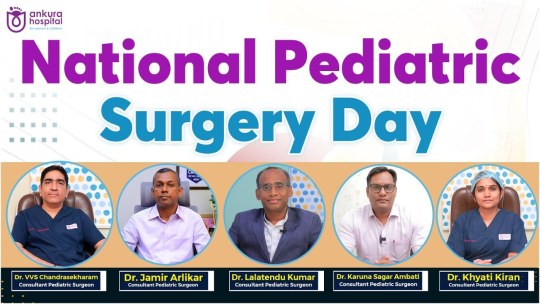
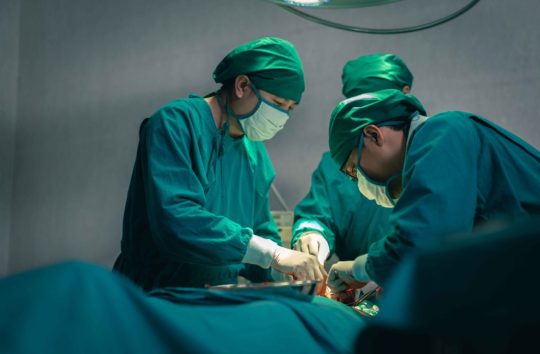
Ankura Hospital is well-recognized as the Best Pediatric Surgeon in India. Our skilled and well-practiced doctors are specialized in providing advanced medical care to pediatric patients, from newborns to adolescents. They are extensively disciplined in medical specializations like Pediatric Neurology, Pediatric Rheumatology, Pediatric Cardiology, Pediatric Pulmonology, Pediatric Nephrology, Pediatric Endocrinology, Pediatric Dermatology, Pediatric Urology. One of the most important reasons behind Ankura’s success is our group of pediatric surgeons that is highly devoted and skilled in giving compassionate care and exclusive services to our young patients. Our team takes good care of the essential necessities of the children and their families.
Our division of Pediatric Urology at the Ankura Hospital is highly committed to providing the best quality surgical procedures for all types of genitourinary conditions in children. The common procedures performed by our Best Pediatric Urologist in India include umbilical hernia repair, undescended testes, laparotomy for tumor or cyst excision, and ureteric reimplantation. Our Best Pediatric Surgeon in India also holds expertise in hypospadias repair, circumcision, hydrostatic reduction of intussusception, collagen dressing for burns, or minor suturing.
Our pediatrics urologists not only have expertise in complex surgical procedures but also are skilled in advanced laparoscopic surgeries which are painless and scar-free. Our minimally invasive laparoscopic surgeries include laparoscopic repair of hernia, thoracoscopy CDH repair, laparoscopic appendectomy, orchiopexy, laparoscopic pyeloplasty, laparoscopic fundoplication and gastrostomy, and vescicoscopic ureteric reimplantation. Hence if you are willing to contact the Best Pediatric Urologist near me, the urology department of Ankura Hospital has got you covered.
Our pediatrics urologists specialize in cutting-edge services like urology, reconstructive urology, uro-oncology, kidney transplantation, and robotic surgery. We are standing out as the Best Pediatric Urologist in India because of our state-of-the-art facilities. We understand that pediatric urologic conditions are more complex and sensitive as compared to adults. Our pediatric surgeons are practised enough to quickly identify and treat intricate conditions and minimize invasive tests and procedures.
Book an Appoint Now!
Ankura Hospital India is the best pediatric surgeon & urologist nearby Best Pediatric Surgeon India, Best Pediatric Urologist in India, Best Pediatric Surgeon near me, Best Pediatric Urologist near me. For more information contact +91 9053 108 108.
youtube
#Best Pediatric Surgeon India#Best Pediatric Urologist in India#Best Pediatric Surgeon near me#Best Pediatric Urologist near me#Youtube
0 notes